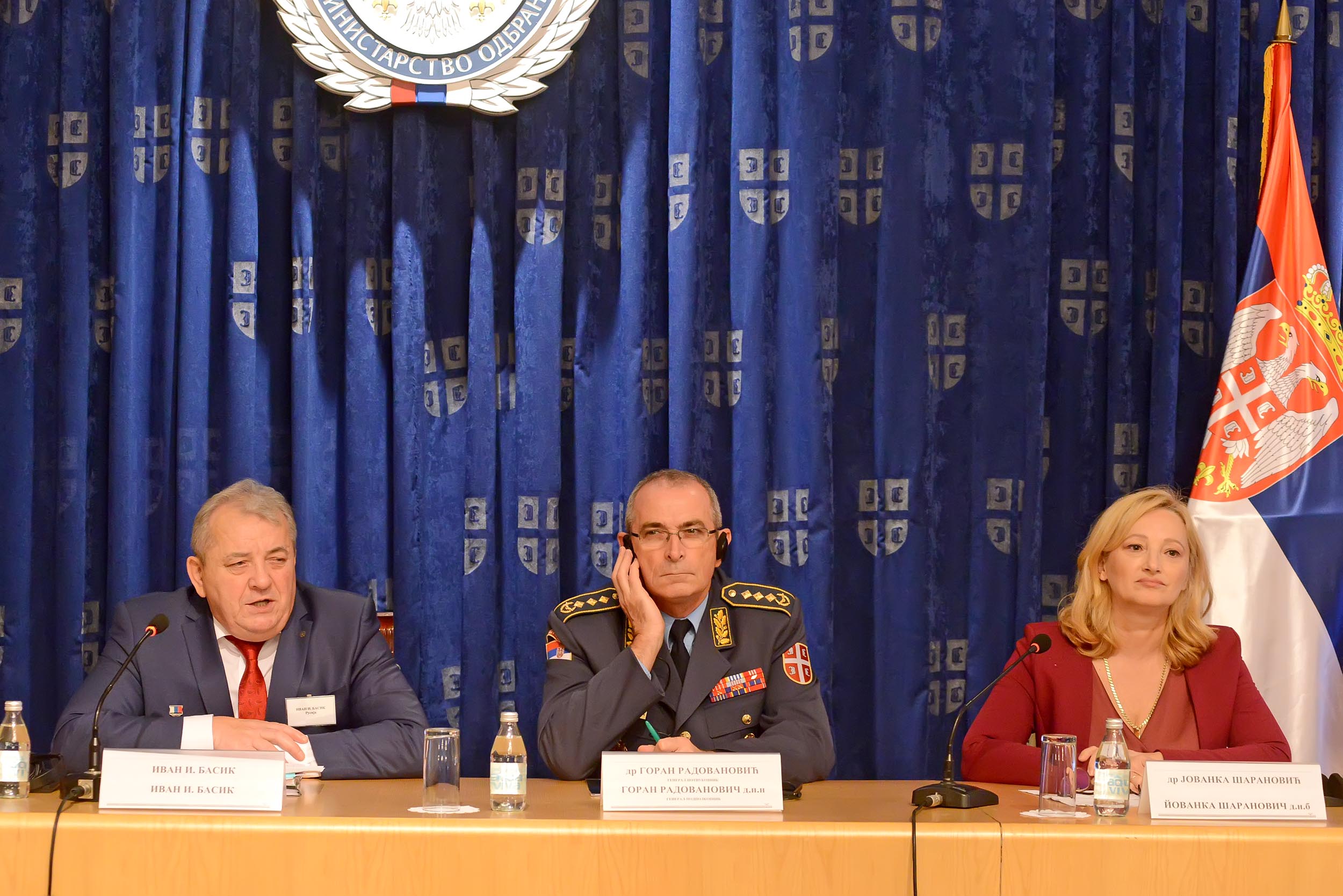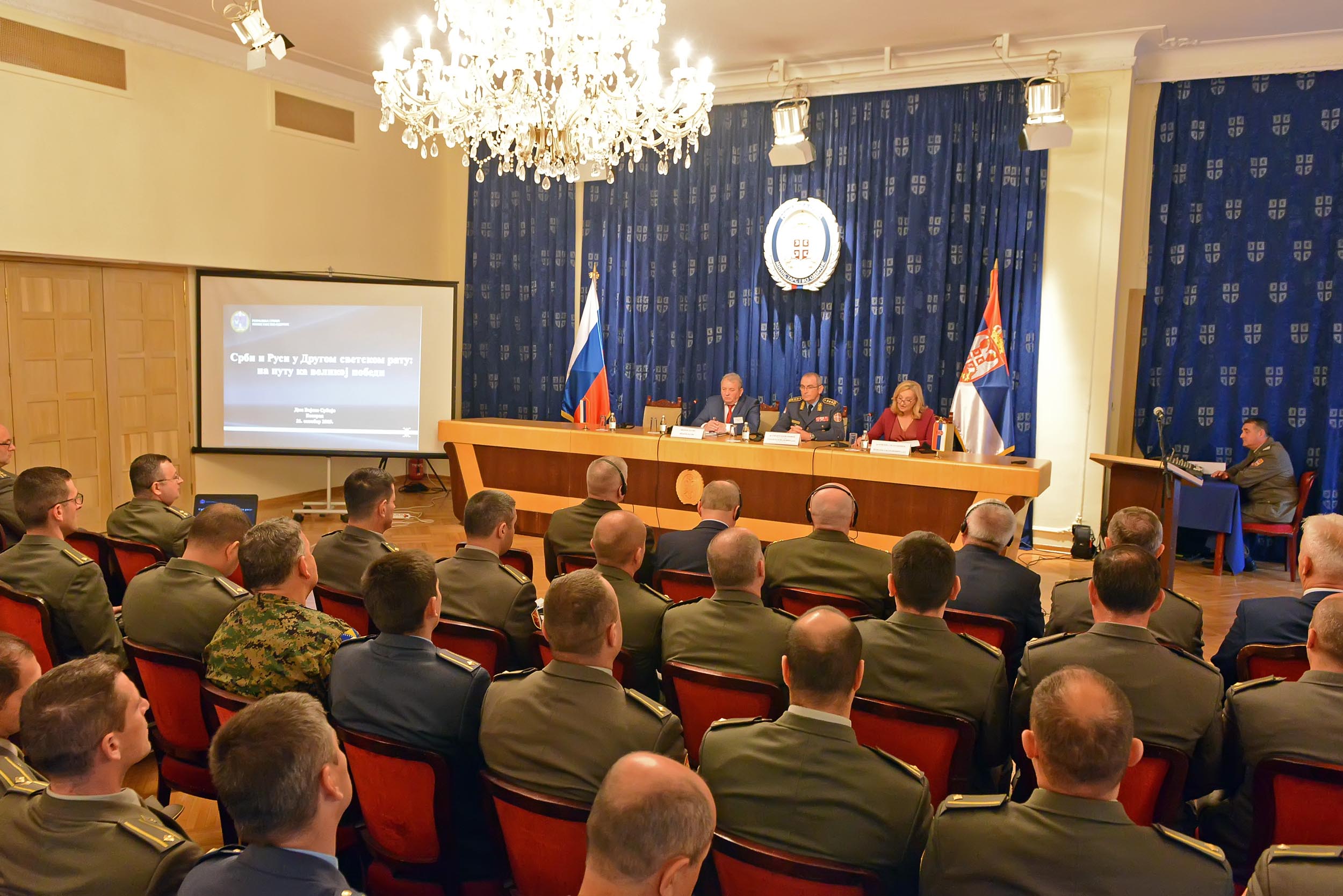21.10.2019.
Round Table “Serbs and Russian in World War II”
To mark the 75th anniversary of the liberation of Belgrade in World War II, a round table “Serbs and Russians in World War II: Towards a Great Victory” was organized at the Central Military Club of the Serbian Armed Forces.
The organizer of the Conference, attended by eminent military historians from the Scientific Research Institute of Military History of the General Staff of the Armed Forces of the Russian Federation, the Military Academy, the Archives of Yugoslavia, the Institute of Contemporary History of Serbia and the Faculty of Philosophy, is the Institute for Strategic Research of the University of Defense.
 Opening the Conference, Rector of the University of Defense, Lieutenant-General Goran Radovanović, Assistant Professor said that in the Belgrade operation, the soldiers of our National Liberation Army together with the members of the Red Army won a key victory in one of the most significant battles during the final operations in this part of the Balkans.
Opening the Conference, Rector of the University of Defense, Lieutenant-General Goran Radovanović, Assistant Professor said that in the Belgrade operation, the soldiers of our National Liberation Army together with the members of the Red Army won a key victory in one of the most significant battles during the final operations in this part of the Balkans.- The aim was not only to liberate the Serbian and Yugoslav capital, but also to prevent the withdrawal of the German Group of Army E from this area. The result was almost complete liberation of Serbia from the occupiers. The enthusiasm of the people expressed when the Red Army was marching through Belgrade testifies to the unbreakable friendship of the two peoples, which continues to this day. This is also testified by the continuous cooperation of our two Armed Forces, our Historical Institutes and the University of Defense, whose students of the High Security and Defense Studies were guests of the Armed Forces of the Russian Federation last year and at that time had the opportunity to visit several institutions of the Russian Armed Forces. This round table also represents another opportunity to enrich the professional cooperation, especially considering all the historical circumstances surrounding the Belgrade operation in 1944, General Radovanović said, among other things.
 The round table participants were greeted by the Director of the Institute for Strategic Research, Professor Jovanka Šaranović, PhD and Ivan Basik, PhD of the Military History Research Institute of the General Staff of the Armed Forces of the Russian Federation.
The round table participants were greeted by the Director of the Institute for Strategic Research, Professor Jovanka Šaranović, PhD and Ivan Basik, PhD of the Military History Research Institute of the General Staff of the Armed Forces of the Russian Federation.The round table will include Ivan Basik, PhD, Colonel Andrey Shagov, PhD, Viktor Mardusin, PhD, Sergey Poplavsky, PhD and Peter Kireev, PhD. Participants from the Institute for Strategic Research who gave their contribution to the round table include Colonel Miljan Milkić, PhD, Lieutenant-Colonel Dalibor Denda, PhD and Tatjana Milošević, PhD. The results of the research they conducted were presented by Assistant Professor from the Military Academy, Colonel Slobodan Đukić, Director of the Archives of Yugoslavia, Milan Terzić, PhD, Professor Alexei Timofeyev, PhD from the Institute for Contemporary History of Serbia and Professor Aleksandar Životić, PhD from the Faculty of Philosophy of the University of Belgrade.




